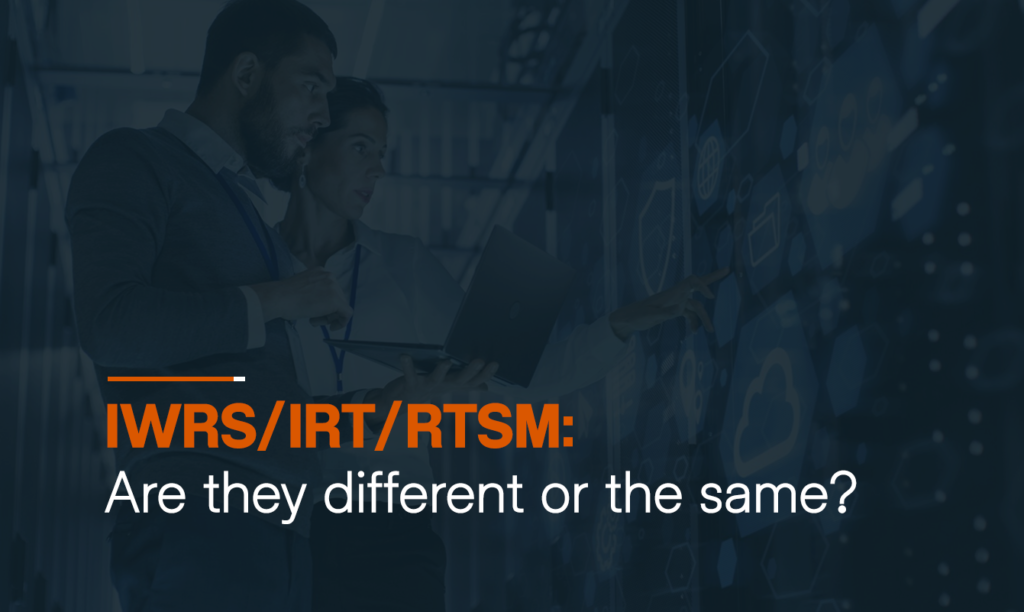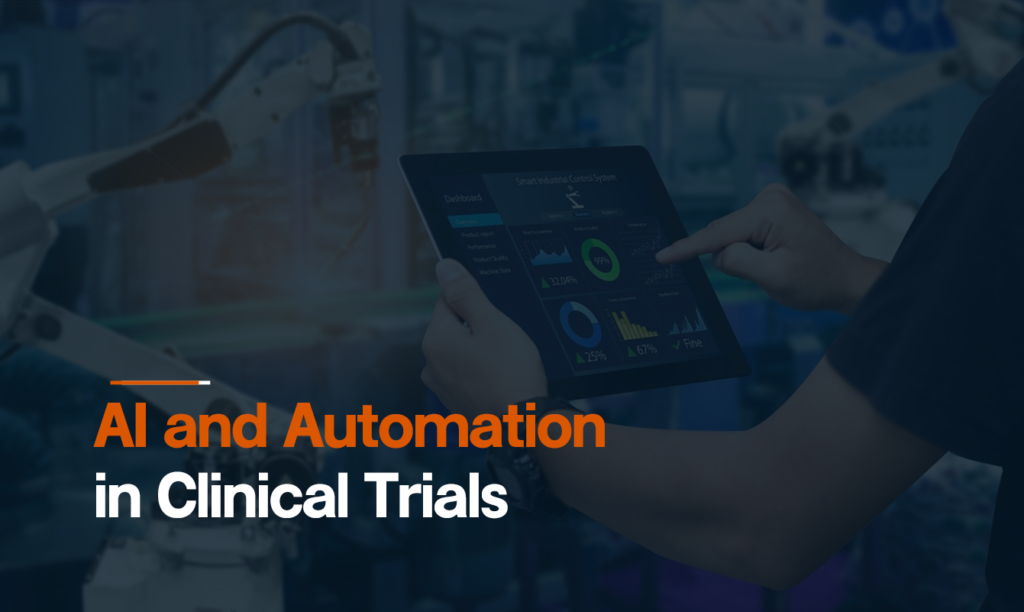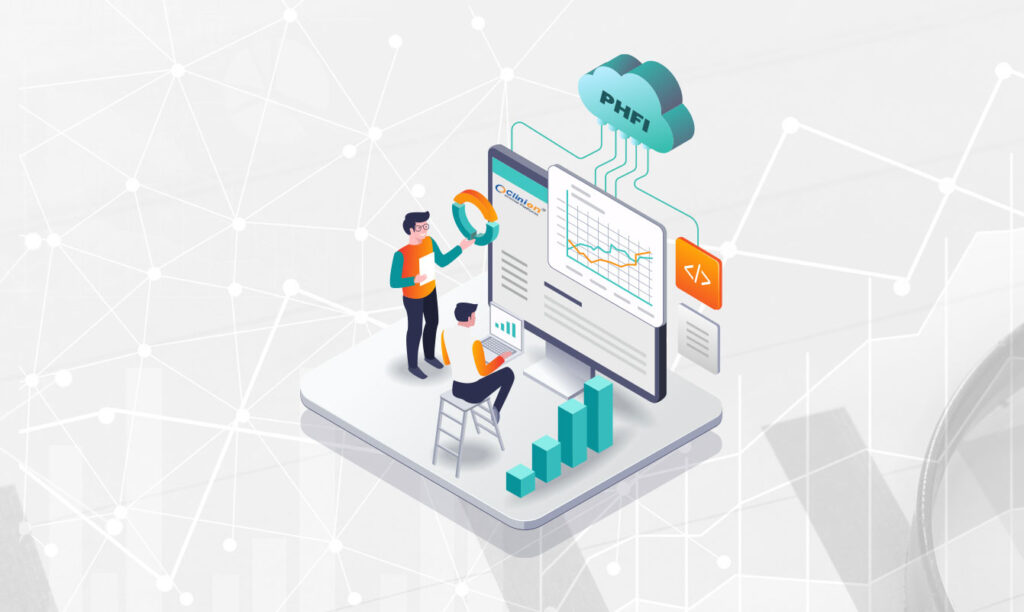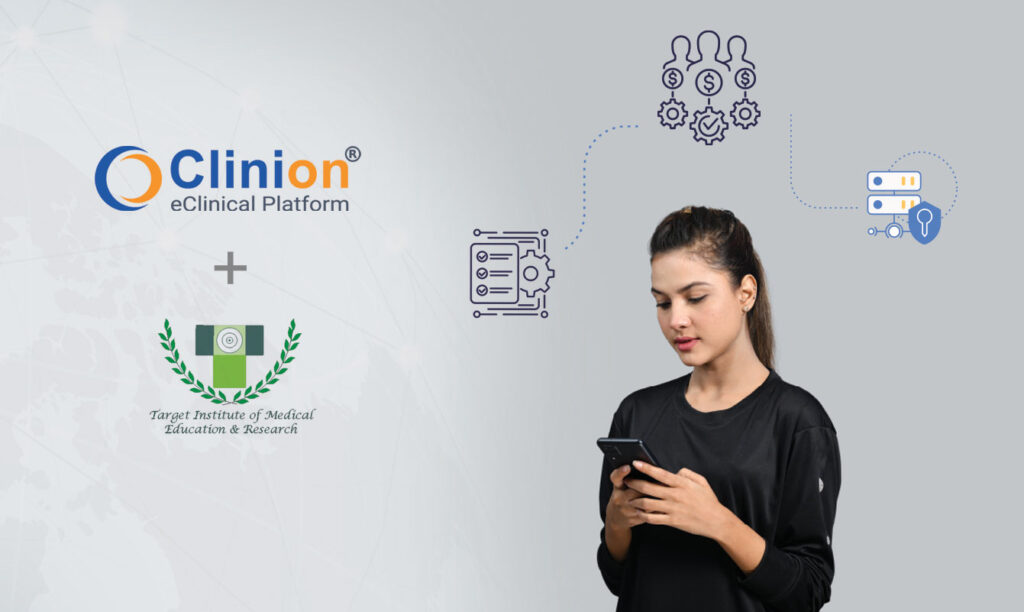IWRS/IRT/RTSM: Are they different or the same?

Recent Articles AI-Powered Clinical Data Validation: Ensuring Accuracy, Efficiency, and Compliance September 21, 2024 Read More AI in Clinical Trials: Key to Accelerated Timelines & Reduced Costs July 29, 2024 Read More Simplifying eCRFs: A Look at the Future of Clinical Data Management July 8, 2024 Read More IWRS/IRT/RTSM: Are they different or the same? Clinion Team / Oct 17, 2022 Clinical trials are not at all easy – they’re quite complex, lengthy, and challenging due to the rise of global regulatory norms. Before starting a clinical trial and while running it, organisations face a number of challenges, and clinical data managers need to keep themselves updated with the latest technologies and accompanying acronyms. Some of these procedural acronyms are industry recognized, others are specific to internal operations. Some technologies that most clinical teams get confused about – IWRS, IRT, RTSM ー are they different or the same with a different name?We wanted to provide an insight into the evolution of some commonly used acronyms in the clinical trials industry and demystify the confusion related to these critical terms. IVRS IVRS or Interactive Voice Response Systems was developed in the 1990s to randomise patients via voice-based systems like phones. It evolved to also dispense IP (Investigational product) and resupply at clinical trial sites, all using voice-based systems. IWRS In the last decade, with the rise of the internet, web-based systems such as Interactive Web Response systems (IWRS) were introduced. These systems helped with patient randomisation, IP dispensation, and Inventory Management. IVRS and IWRS were initially used to distinguish between eClinical systems based on whether they used voice or web interfaces. As organizations started employing both IVRS and IWRS, the term IxRS was introduced to encompass either type of system. IRT IRT (Interactive Response Technologies) is considered a collective term encompassing diverse technologies, including Web and Voice. IRT is used in almost every industry, so clinical trial industry-specific terms were coined. Why RTSM Randomization and Trial Supply Management (RTSM) is the new buzzword within IRT. This term has been around since the advent of IRT technologies, but it refers more to the function of the actual system vs. the mode of delivery (voice, web, mobile, etc.). Not only does RTSM closely represent the clinical research industry, but also reduces the burden of coining newer terminologies, every time the technology evolves. RTSM vs IRT The terms RTSM and IRT are often used interchangeably. However, IRT’s key focus lies on patient randomization, trial-data management, and checking the onsite presence of drugs. It acts as a centralized system for study logistics, facilitating communication between stakeholders. But, in addition to these core functions, RTSM also deals with drug supply management, forecasting, inventory management, and supply chain optimization. RTSM operates on a wider spectrum and handles complex logistics to ensure seamless trial execution and continuity in drug supply. In short, RTSM emphasizes the capabilities of the system itself, rather than the way it delivers those capabilities (such as by voice, web, or mobile app) Choosing Clinion RTSM Software enables you to experience the highly-integrated eClinical system allowing you to monitor complex randomisation and drug supplies using a single application. Further, you can integrate Clinion RTSM with Clinion EDC, enabling you to randomize patients and assign kits directly from Clinion EDC, thereby avoiding the need to switch between systems, enhancing time management, and reducing the likelihood of duplicate data entry. Experience rapid deployment and ease of integration by reaching out to us now! Contact Us
AI and Automation in Clinical Trials

Recent Articles Simplifying eCRFs: A Look at the Future of Clinical Data Management July 8, 2024 Read More AI in Clinical Trials: Key to Accelerated Timelines & Reduced Costs July 29, 2024 Read More AI-Powered Clinical Data Validation: Ensuring Accuracy, Efficiency, and Compliance September 21, 2024 Read More AI and Automation in Clinical Trials Manuj Vangipurapu / May 12, 2022 “The future of Clinical Research is AI”! It’s common place to hear this now a days but what does it mean? We have all heard of how Artificial Intelligence is being applied in basic research in identifying molecules, in finding disease patterns in potential patient populations and in Virtual Trials. In this article I will briefly touch upon the various well known and a few lesser-known applications of AI and Automation in the clinical trials process. Integrating AI and Machine Learning into Clinical Trials Machine Learning (ML) is a branch of Artificial Intelligence (AI) which deals with applying algorithms to data, enabling the system to ‘learn’ and improve. ML allows users to process large quantities of data and make smart inferences and predict outcomes. These insights can be used to automate parts of the system leading to a faster and a more efficient clinical trial system. Automation allows the ML predictions to be fed back into the system and specific actions to be taken, reducing the need for human intervention, and improving quality and speed. ML and automation can be applied across every stage of the trial process. 6 Key Use Cases of AI in Clinical Trials Study Design Machine Learning can be applied to protocol design and language translation. Using existing protocol data and health libraries for specific therapeutic areas, a protocol for a new study can be generated by the system. The ML algorithms would be able to design an optimal protocol from the knowledge base, leading to reduced design times and protocol amendments and study disruptions. Language translation could also be done quickly and easily and with a greater degree of accuracy than traditional methods since the ML model would have a domain specific language knowledge base to learn from. Study Design ML can be used to automate the design and set-up of the CRF and study database. Using a library of CRFs for specific therapies and study designs, based on the protocol, the ML model can be trained to design an optimal CRF along with edit checks. Automation allows this output to be translated into actual study setup and validation, allowing database designers to tweak the design as and where required. This approach leads to an optimal design which also incorporates edit checks which otherwise might be missed out if being designed by a human. Automation also allows this ML designed study to be set up and validated. The validation report provides the necessary inputs to designers to apply the finishing touches before go-live. ML can also be used to automate SDTM mapping or create SDTM annotated studies. Trial Management A lot of automation involving machine learning is possible in trial management. Some of the obvious use cases are site selection, patient enrolment, Risk Based Monitoring (RBM) and Chatbots. Site Selection: Optimal site selection is possible using machine learning models. These models can be trained to review site parameters such as Enrolment, Safety, Compliance and Data Quality and predict which sites would be good candidates for a new study for a particular specialty. Prioritization of these parameters depends upon type of trial and CRO/Sponsor. The algorithm could be trained on previous study data and would be able to predict site performance for a new study Patient Enrolment: Predictive Analytics for patient enrolment is a popular use case. This utilizes variables such as therapeutic area, study duration, disease prevalence (from Health Economics), study complexity, adverse events, randomization, multi-centric etc. The ML algorithm would review all the above variables and select those which have the most impact (relevant). The finalized model could then be used for future studies to predict patient enrolment. Even though this is a popular use case, the large no of external factors makes this prediction very challenging and of low probability. Risk Based Monitoring: Risk Based Monitoring or RBM in clinical trials can be applied at various stages of the trial to identify and mitigate risks affecting a clinical trial. One type of RBM utilizes some of the components of site selection like Enrolment, Safety, Compliance and Data Quality and other variables like therapeutic area, multi-centricity of trials etc. to predict site performance during a clinical trial. These predictors can be used to de-risk the trial by identifying risk in advance and working to alleviate it or closing some sites and opening new ones or focusing on the sites which are doing well. Chatbots: Chatbots are some of the simplest and easiest to develop examples of the power of machine learning. Different chatbots can be deployed for different types of users – site users, CRO staff, patients etc. Users can interact with them by text and voice and the chatbots understand natural language and context and are able to revert with very accurate responses. This improves user experience and reduces the burden on the support team. Data Management Data Management offers tremendous scope for AI enabled automation. Some of them are listed below: Smart Queries: In smart querying, the machine learning algorithm reads the entered trial data and identifies potential queries which can be raised for various field items. This identification is possible through a combination of previous study data and the therapeutic area. The algorithm learns the potential value ranges for a particular data point with regards to a therapeutic area and raises a query if it identifies a deviation. This query is then vetted by a data manager and qualified as a legitimate query or discarded. The ML algorithm also learns from this decision and improves its classification going ahead. Medical Coding: Medical coding terms using WHODD and MedDRA dictionaries can be automatically coded using regular
Top 9 Features to Look for While Choosing an eClinical Platform

Recent Articles AI-Powered Clinical Data Validation: Ensuring Accuracy, Efficiency, and Compliance September 21, 2024 Read More Simplifying eCRFs: A Look at the Future of Clinical Data Management July 8, 2024 Read More AI in Clinical Trials: Key to Accelerated Timelines & Reduced Costs July 29, 2024 Read More Top 9 Features to Look for While Choosing an eClinical Platform Rajesh S Pothula / April 27, 2022 Are you in a situation where you are planning to select an eClinical platform for your trials?You are not alone; many clinical research organizations are in the same boat. If you have ever scoured the internet to find out which Software to use for your clinical trials, you could be overwhelmed by the number of options available. In this post, we will help make your job easier by offering a list of essential features that your eClinical platform should have. If you already have a preferred eClinical solution in mind, then it is best to evaluate them against these criteria before making a final decision. If you do not have any preferences yet, this list will guide you through the selection process. 1. Faster Study Setup You can’t afford delays in starting your clinical trial; otherwise, you may fall behind your competitors or miss out on research grants and funding opportunities. The study setup process can be time-consuming and difficult. It involves different steps such as setting up a document library, importing data, creating case report forms (CRFs), and validating them. An ideal eClinical platform should streamline these steps and help you set up your study quickly. 2. Intuitive Interface You must be able to quickly navigate through different areas of the Software without facing any complications or confusion. An intuitive interface makes it easier for users to understand the Software’s functionality without requiring much training or user guides. An easy-to-use interface will save you time and money on training while increasing user adoption (and reducing headaches). 3. Fully Integrated eClinical Software To minimize errors, avoid data loss and eliminate duplication of efforts, look for a platform that combines all your essential clinical study needs into one fully integrated system — eProtocol Automation, EDC, CTMS, RTMS, ePRO, CSR Automation and so on. 4. Built-in Automation Automation is essential in any industry, and clinical trials are no exception. Automated solutions allow for easier data collection, better patient experience and more accurate results. eClinical platforms with built-in automation help data managers perform necessary validation checks, create reports in a short time, and reduce errors by eliminating manual work. 5. Secure and Compliant Data Management The most important feature you need to look for in an eClinical platform is secure data management. Your trial data isn’t just any data; it is highly sensitive and confidential patient data. The data collected by the sponsor company needs to be stored in a centralized location to ensure easy access and monitoring of the trial progress. Your solution should include audit trails, 21 CFR Part 11 compliance, and advanced security measures such as two-factor authentication (2FA) and IP address restrictions. 6. Remote Trial Monitoring Today, most clinical research organizations (CROs), prefer to be able to remotely monitor their trials. Remote monitoring is a great way to improve the efficiency of their on-site team members and reduce travel time between sites. 7. Powerful and Advanced Reporting Sponsors should have access to detailed, comprehensive reports that provide accurate information on progress and any issues that may have arisen during the trial. These reports should also be customizable to be tailored based on the sponsor’s needs. 8. Data Visualization and Analytics A sophisticated eClinical solution allows you to automatically generate reports by selecting the parameters. Each sponsor can then customize the report according to their preferences. These platforms allow you to monitor patient enrollment and perform investigator tasks via visually appealing dashboards. This allows you to take immediate action when any problems arise. 9. Flexible & Cost-effective Subscription Plans Pricing is one of the top factors when choosing an eClinical platform. Look for something affordable and flexible – you want to pay only for what you need. Choose a vendor that offers flat pricing solutions per study/per month basis, so you don’t need to bother about long term commitments. If you’re looking for the best eClinical platform, your search ends here! Clinion brings you an AI-enabled eClinical Platform that offers all the functionalities you need to manage trials from start to finish in one place. Clinion AI-enabled eClinical Platform is an Clinical Trial Software consisting of EDC, RTSM, ePRO, CTMS, and document automation. Singing up on one platform is all you need to conduct a smooth and seamless clinical trial. Clinion AI-enabled eClinical Platform is easy to set up and intuitive interface makes data entry and navigation super easy and is a delight for site personnel and data managers; In fact it has one of the fastest study setup times in the industry. Clinion AI-enabled eClinical Platform enables remote trial monitoring with its eCOA solution consisting of eConsent and ePRO seamlessly integrated into Clinion EDC. Clinion AI-enabled eClinical Platform dashboards allow sites and CROs to have a complete insight into the trial at any point in time. You can access the entire study snapshot at any moment, from enrollment to inventory to page completion to adverse event reporting, and even page completion. Clinion AI-enabled eClinical Platform is 21CFR Part11 compliant and also ISO 9001, 27001 compliant. It is securely hosted on AWS. Our Competitive Advantage: Clinion AI-enabled eClinical Platform is one of the first EDCs to fully integrate AI and Automation into its products. From eProtocol to Medical Coding to Clinical Study Reports, Clinion automation reduces study time and improves efficiency. Clinion AI-enabled eClinical Platform Report Generator allows users to design their study reports and save them for the subsequent generation. We work closely with our partners to understand their needs and study requirements. Clinion AI-enabled eClinical Platform offers affordable and flexible pricing options, whether volume licensing or extended duration licenses. Automate Your
How Clinion Helped PHFI Modernize its Data Management Processes

Recent Articles AI-Powered Clinical Data Validation: Ensuring Accuracy, Efficiency, and Compliance September 21, 2024 Read More Simplifying eCRFs: A Look at the Future of Clinical Data Management July 8, 2024 Read More AI in Clinical Trials: Key to Accelerated Timelines & Reduced Costs July 29, 2024 Read More How Clinion Helped PHFI Modernize its Data Management Processes Clinion Team / March 15, 2022 Meeting the shortfall of health professionals is imperative to a sustained and holistic response to public health concerns of any country. The Public Health Foundation of India (PHFI), a public and private initiative, addresses these concerns by strengthening training, research and policy developments to create a healthier India. PHFI has partnered with Clinion to digitise its legacy data repositories and also modernize its data management practices including automating public health and clinical research studies. Key Challenges Different data formats and storage locations, with different stakeholders. Incompatible data formats, Incomplete or non-existent data dictionaries. Limited access to data on a timely basis. Our Solution Clinion developed the Clinical Research Data Repository (CRDR) on top of the existing eClinical platform, including a robust data dictionary with document management and custom reporting system. The CRDR had a robust user access system which allowed investigators and data owners to assign access rights to data and users. The document management system allowed archival of all documents associated with the study in one central repository. The custom reporting module allowed users to create custom reports and data sets for both investigational and analysis purposes. The development of the CRDR with EDC capabilities enabled the migration of 165 closed public health and clinical research studies into the Clinical Research Data Repository (CRDR) with all associated documents and data dictionaries. The CRDR is being actively used by PHFI investigators to review past studies and conduct ongoing and new studies, serving as PHFI’s principal data repository and study platform. Successful Study Outcomes The data dictionaries helped investigators and research associates at PHFI to search through archived studies and documents in the CRDR. The custom reports helped users quickly find the information they were looking for and create data sets from studies. This used to be almost impossible to do in the past. The CRDR also had a built-in user access system which allowed investigators and data owners to control access to their studies data. All the studies were archived in one place giving PHFI a greater degree of control over their study data than in the past. On-going and new studies could also be initiated using the same platform, thus obviating the need to archive them once completed. The study setup was quite fast using the Clinion Platform. Utilization of Global Library to set up new forms and variables is quite easy and tested forms are available to use in new studies. The application can be easily demostrated to a user with no prior scientific knowledge, and provides detailed work instruction to use the application for performing all the activities pertaining to the project. Archana Bhattacharya, Head of Data Management at PHFI. The Public Health Foundation of India (PHFI) The Public Health Foundation of India (PHFI) is working towards building a healthier India. It is helping to address the limited institutional and systems capacity in India by strengthening education and training, advancing research and technology, while facilitating policy and practice in the area of Public Health. The Foundation is governed by an independent board composed of senior government officials, eminent Indian and International academic and leaders, civil society representatives and corporate leaders. What is Clinion? Clinion provides EDC, CTMS, RTSM, eCOA and Document Automation as an integrated platform or as stand-alone software to flawlessly execute and deploy Phase I to IV clinical trials. Clinion uses AI and Automation to provide cutting-edge clinical trial software to the Pharmaceutical, Biotech and Medical Device industries, enabling them to accelerate trial setup and conduct and manage trials more easily with high data quality. Want to know more about what Clinion has to offer? Request a Demo
How Clinion Helped Conduct India’s Largest Decentralised Trial with 95% Patient Retention

Recent Articles AI-Powered Clinical Data Validation: Ensuring Accuracy, Efficiency, and Compliance September 21, 2024 Read More Simplifying eCRFs: A Look at the Future of Clinical Data Management July 8, 2024 Read More AI in Clinical Trials: Key to Accelerated Timelines & Reduced Costs July 29, 2024 Read More How Clinion Helped Conduct India’s Largest Decentralised Trial with 95% Patient Retention Clinion Team / March 15, 2022 The COVID-19 pandemic has changed how clinical trials will be conducted and managed going forward. Mainly, the urgency and necessity to adopt a virtual platform to efficiently create, deploy, gather verified patient data, and conduct successful trials. This is no small task. Choosing the right technology and eClinical Solution can make this process so much easier and much more manageable. After successfully conducting more than 50 covid studies and 15 vaccine trials, impacting over 20,000 subjects worldwide, we’ve gained a deeper understanding on how to design, setup, conduct, and complete Covid-19 clinical trials with the highest rate of client satisfaction in the current market. We also understand the issues and challenges which CROs face with current software for executing Covid-19 trials, and offer our solution and expertise to resolve all challenges that can arise. Challenges Large-scale COVID-19 clinical trial Remote Patient Compliance Site and onboarding operations Why Clinion Remote and on-site data collection eConsent Technology eCOA Application BYOD Solution Highlights Peak of the COVID-19 Pandemic Entire Country is in Lockdown Subjects are from Urban, Semi-urban and Rural Areas Only 3 weeks for First Patient In (FPI) time Target Institute of Medical Education & Research (TIMER) Target Institute of Medical Education & Research (TIMER) is a group of highly qualified professionals and academicians from the field of Ayurveda, Medicine, Pharmacology and Statistics. TIMER prioritises assistance, coordination, and guidance in academic and industry research. TIMER focuses on grass root research at the Postgraduate level of Ayurveda, Herbal, Cosmetic, Nutraceutical and other allied medical fraternities. Clinion: Integrated eClinical Trial Platform Clinion® provides EDC, CTMS, RTSM, eCOA and Document Automation as an integrated platform or as stand-alone software to flawlessly execute and deploy Phase I to IV clinical trials. Clinion uses AI and Automation to provide cutting-edge clinical trial software to the Pharmaceutical, Biotech and Medical Device industries, enabling them to accelerate trial setup and conduct and manage trials more easily with high data quality. Improve Patient Engagement and Retention! Decentralise your trials! Request a Demo

